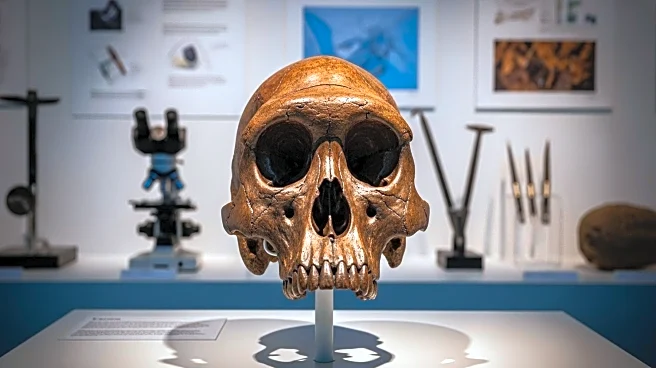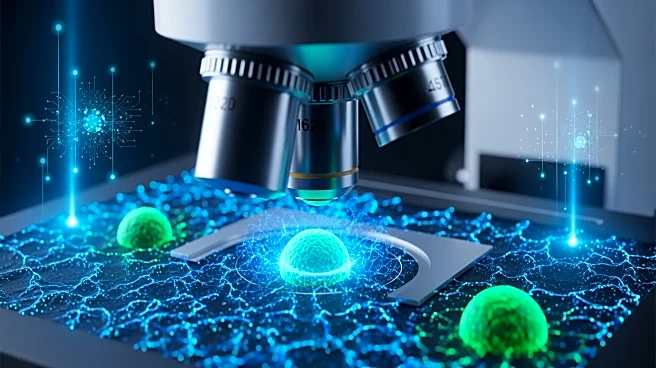What's Happening?
A digital reconstruction of a million-year-old skull has led scientists to propose a significant revision in the timeline of human evolution. The skull, discovered in China, suggests that Homo sapiens may have diverged from ancient ancestors 400,000 years earlier than previously thought, and in Asia rather than Africa. This finding challenges the traditional view that early human evolution primarily occurred in Africa. The study, published recently, indicates that humans co-existed with other species, including Neanderthals, for longer than previously believed. The skull, known as Yunxian 2, was initially thought to belong to Homo erectus, but modern reconstruction technologies revealed features closer to Homo longi and Homo sapiens.
Why It's Important?
This discovery has the potential to reshape the understanding of human evolution, suggesting a more complex and earlier divergence of human ancestors than previously believed. If the findings are accurate, it could imply that East Asia played a crucial role in hominin evolution, challenging the long-held assumption of Africa as the sole cradle of human development. This could lead to a reevaluation of the migration and interaction patterns of early humans, impacting theories on how modern humans evolved and spread across the globe. The study also highlights the importance of advanced technologies in uncovering new insights into human history.
What's Next?
Further research and analysis are likely to follow, as scientists seek to confirm these findings and explore their implications. The study may prompt additional excavations and investigations in Asia to uncover more evidence of early human presence and evolution. Researchers may also focus on comparing these findings with other fossil records to build a more comprehensive picture of human ancestry. The scientific community is expected to engage in discussions and debates regarding the implications of this discovery, potentially leading to new theories and models of human evolution.
Beyond the Headlines
The discovery raises ethical and cultural questions about the narratives of human origin and the emphasis placed on certain regions over others. It may lead to a broader recognition of the diverse contributions to human evolution from different parts of the world. Additionally, the use of advanced reconstruction technologies underscores the growing role of technology in archaeology and anthropology, offering new methods to explore and understand ancient history.










